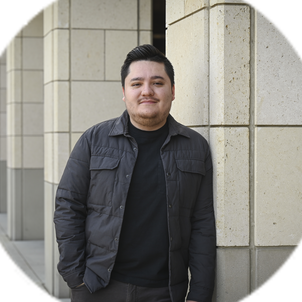Even as a kid I was interested in equity. I didn’t have the language to talk about it then, but I noticed that often the people who served as authority figures were white, and those in non-authoritative positions were Black. In high school, I took a social studies class called “Poverty in America” that exposed me to ideas surrounding how inequality manifests in society; why some people get things and others don’t, and how being born in a particular zip code impacts the opportunities you have and your ideas on gender and race. That experience was profound for me and my trajectory, and from then on, I decided I wanted to explore these ideas further.
By the time I began my PhD in sociology at the University of California, Berkeley, my interests in ethnicity, citizenship, and immigration had expanded to include the intersection of racial inequality and organizations. Being in proximity to Silicon Valley, I saw a lot of people starting companies, and I watched who was able to raise money and who struggled to get their fair share of access to those resources. Friends who were Black tech entrepreneurs told me about obstacles they encountered that didn’t match the reading I was doing in school. Management does a lot of work on entrepreneurship, but it tends to be race-neutral, not taking into consideration the role of race, the different access to opportunities that people have, and how they are forced to navigate through barriers.
Right now I’m using an entrepreneurship lens to understand the role of race within organizations, examining the constraints Black tech entrepreneurs encounter, their strategies for coping with those, and the role those barriers play in shaping the opportunities, resources, networks, and institutions they have access to. But there’s a problem in studying this field. We know that less than 2% of venture capital funding goes to Black entrepreneurs, but there is almost no data to tell us who these individuals are or what their experience is like. To counter this, I’m building a dataset of venture-backed Black and Latino tech founders. I’m hoping it will give us a detailed profile of these entrepreneurs, and help us understand within group differentiation how they’re doing relative to each other.
Many things that may initially appear race-neutral, such as the ability to become an entrepreneur, actually present a lot of barriers for some people and not as many for others. We might, for example, be able to improve the limited networking access Black tech founders have by pushing organizations and venture capitalists to offer more training and incubator programs with adequate levels of funding, or by encouraging them to be more receptive to cold calls and emails.
One of the things that really attracted me to Stanford Management Science & Engineering is that everyone here works on so many things, and it’s such an interdisciplinary department. But at the heart of it, we’re all really interested in engineering solutions to societal problems – understanding not only the challenges that business organizations are facing, but also how technology can be used to alleviate – or exacerbate – those challenges.
Related spotlights

Adrienne Propp

Lara Weed

